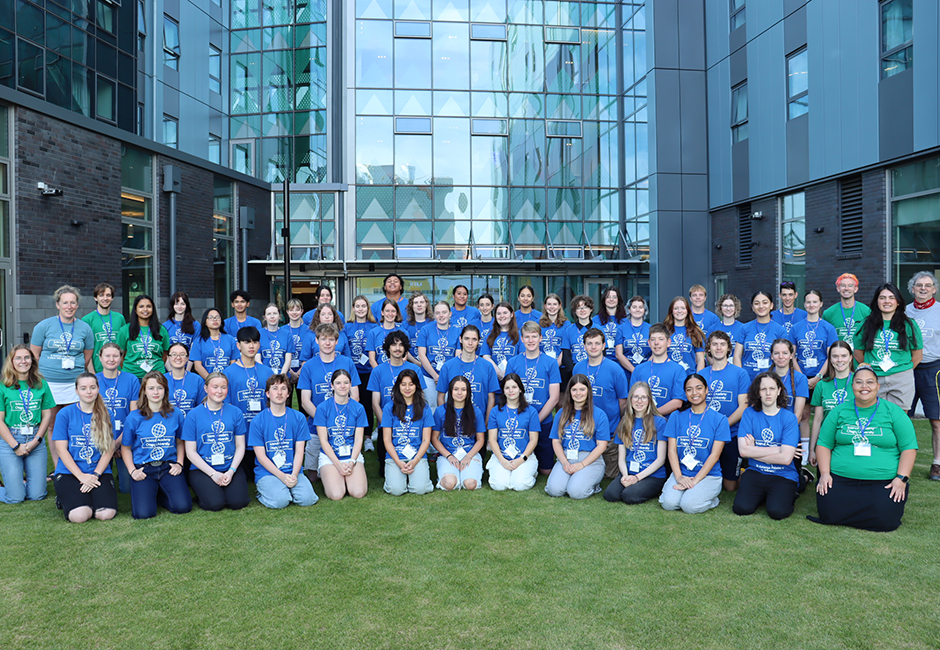
Science Academy students 2024.
Our 2024 student cohort comprises 58 potentially high-achieving Year 13 Science students from all over rural/provincial, small and/or lower decile across New Zealand.
The students will attend two science camps (January and July), at the University's Dunedin campus. Between January and July camps, they work in teams on a science communication project which involves preparing a short film, podcast, public talk, or museum display talk that will be showcased to a public audience as part of the NZ International Science Festival at the end of the July camp. Following the July camp our students are supported in their run-up to NCEA/Scholarship External exams in November with 10 weekly on-line tutorials on Biology, Chemistry and Physics with a focus on how to achieve excellence.
January 2024 Science Camp
“It was amazing!!! It was so positive and I am really looking forward to the July camp”
Our 2024 Summer camp ran from 21 to 27 January. This followed the usual packed programme of morning seminars, two-day projects, short electives, science communication workshops and free-time options (see Timetable below).
The morning seminars addressed topics such as:
- Bacterial BLIS: Discovery and Commercial Applications
- Black Holes- The most extreme objects in the Universe
- From padawan apprentice to DNA time lord: my Science journey through time and space
Two-day projects are divided into two streams with students choosing one option from each stream.
Project Stream A
- Applied Mathematics and Statistics
- Chemistry
- Anatomy and Physiology
- Marine Science
Project Stream B
- Genetics
- Physics
- Sport and Exercise Science
- Computer Studies
See our Projects page for details
In addition, our students choose a short 3-hour elective on a topic not normally covered as part of the school curriculum.
This year for the January camp we offered:
- Archaeology
- Forensics
- Pharmacology
- Psychology
- Quantum Physics
- Zoology
Students get a 3-hour break from 3–6pm during which they can sign up for fun activities around Dunedin or just chill out at the accommodation.
Science Communication Workshops
An introduction to some basic science communication skills is a key component of the Science Academy and these are covered during evening interactive workshops from 7:00–8:30pm.
Students choose from one of four science communication streams:
- Interpretive Science Talks
- Science Radio Podcasting
- Introduction to Science Filmmaking
- Museum Science Communication
Between January and July camps, students work in teams or individually on a project that will be presented to a public audience at the end of the July camp as part of the NZ International Science Festival.
A welcome mid-week break from science involved a wildlife cruise on the MV Monarch around Taiaroa Head followed by a sports afternoon and barbeque at Portobello Domain on the Otago Peninsula.
The students left invigorated and enthused about tackling Year 13 Science and super keen to return in July.
“It has been an awesome week, and I can't wait to come back in July for another one. Also the entire team from the greenshirts, the lecturers, the caterers, and everyone else were super awesome and very friendly.”
“Loved meeting so many new people from all over NZ.”
Find out more about the Summer camp schedule
Student timetable January 2023 (PDF)
